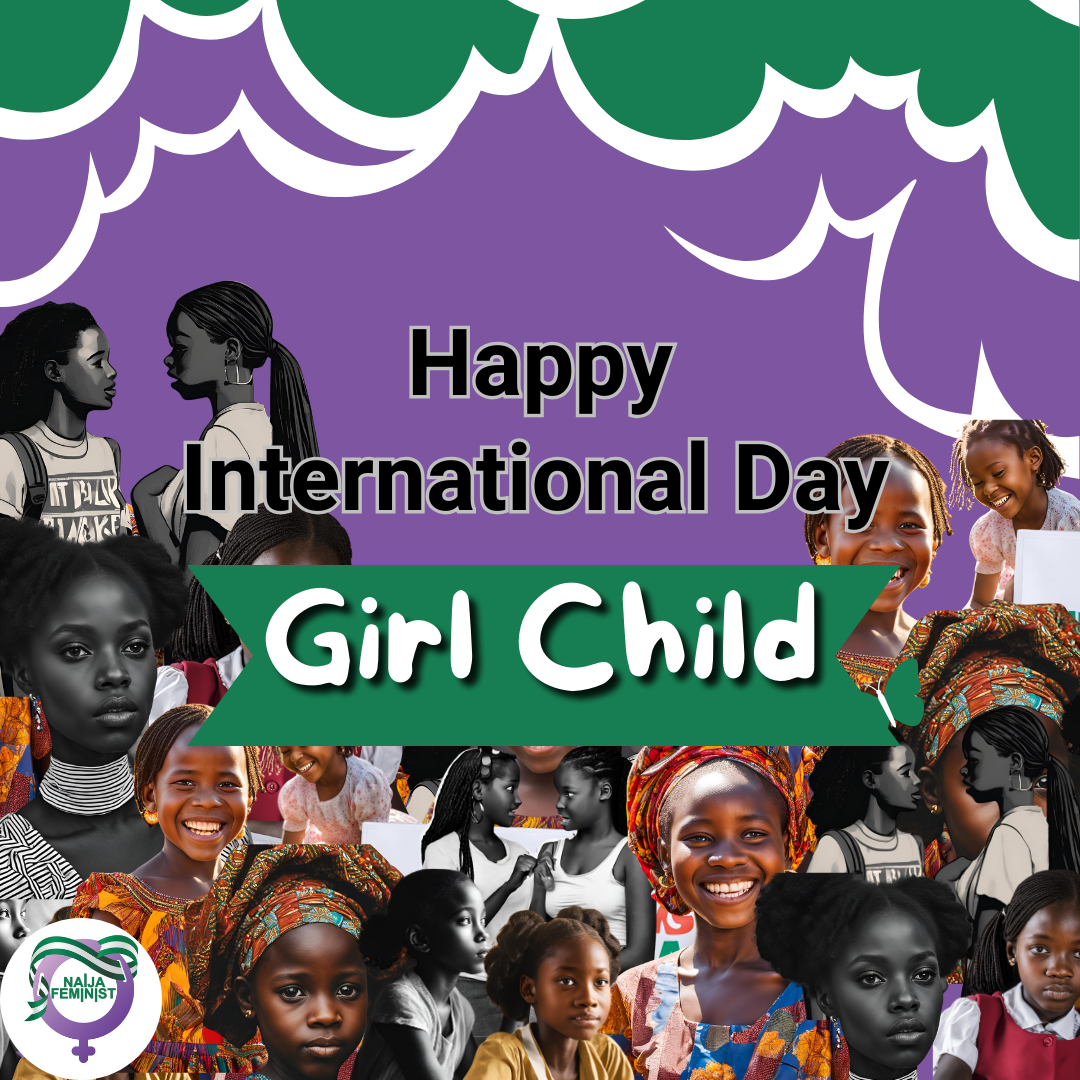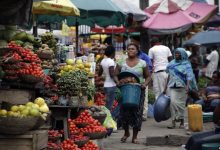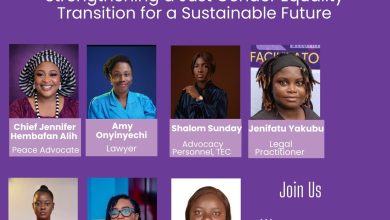Make the World Safe for Girls this International Day of Girl Child

|
Getting your Trinity Audio player ready...
|
In Nigeria’s largest city, Ibadan, lives a 13-year-old girl. Her name is Adebisi. At 13, Adebisi, who is supposed to be in junior secondary school preparing for her junior certification exams, wakes up at 5 a.m. daily to hawk food her mother prepares. Although Adebisi constantly dreams of going to school, she finds herself in a difficult situation.
“I often run into people from my neighbourhood in their uniforms and shiny shoes on their way to school. Sometimes, they even buy food for me to eat during their lunch break in school. I always wish I was in my uniform on my way to school as well,” Adebisi told Naija Feminists Media (NFM) reporter.
Adebisi has two younger siblings and two brothers; however, her father believes only boys should acquire education. As such, Adebisi and her sisters are denied education while their brothers go to school.
When Adebisi finishes hawking for the day, her mother allows her to go and see her friends—Lade and Fayo—who go to school. Slowly, in a routine they have formed over the past two years, they work through the day’s sums and grammar exercises together. Despite coming from a background where the odds are against her, Adebisi has a vision of a bright future where she is successful and fights for girls’ rights in her position.
“I love learning big grammar from the books my friends give me. I don’t really like calculations, but I love reading books and learning new words. I think I want to be a lawyer. I want to be able to wear a wig in court like I see in the pictures and fight for the rights of girls like me,” she said.

Adebisi is one of the millions of out-of-school girls in Nigeria, where approximately 47% of the out-of-school children are girls. The challenges girls face in the country extend beyond education; they also include issues such as child marriage and sexual harassment.
Child marriage in Nigeria
According to research, about 7.6 million girls who should be in primary and junior secondary schools in Nigeria are currently out of school. Additionally, the nation continues to have a high rate of child marriage, with 44% of girls in Nigeria getting married before the age of 18 and over 24 million child brides, which places Nigeria third worldwide. Although the national prevalence appears to have decreased from 44% to 30%, progress has been uneven and gradual, disproportionately affecting girls with little or no education, those in rural areas, and those from the poorest households.
In May 2024, over 100 female orphans in Niger State were married off in separate ceremonies, even after the discussion sparked outrage in the country. This decision, made by the Speaker of the Niger State Assembly, Senator Abdulmalik Sarkin-Daji, was intended to provide “support” to girls who had lost their families to bandit attacks in the state. Even though arranged/child marriages are prohibited for citizens under 18 under the law in Nigeria, it was claimed that the brides were between 18 and 24.
Sexual abuse and harassment of the girls in Nigeria
Although the occurrence of child sexual abuse is largely unknown still, it is estimated to be around the range of 2.1% to 77.7%. According to the United Nations International Children’s Emergency Funds, 2015, more than 31.4% of girls’ first sexual experience in Nigeria was reported as rape or forced sex.
Over the last five years, Lagos State, which has been regarded as the 19th greatest place to visit in the world, has suffered a spike in sexual and gender-based violence, with over 2,576 cases reported involving children; 54% of these victims were girls.
In April 2014, about 276 girls, aged 16 to 18, were kidnapped from the Chibok community in Yobe State by the Islamic terrorist group – Boko Haram. The group claimed that the kidnapping was a response to Western education, which they deemed unnecessary. However, only girls were kidnapped and forced to convert to Islam. It has been ten years, and about 100 of the Chibok girls are still missing.
According to an investigation by Amnesty International, some of the released Chibok girls have been forced to marry their former abductors who had been “rehabilitated” by the Nigerian government. This situation subjects them to a lifetime of trauma. The situation continues to worsen as girls with disabilities suffer representation. In schools, some girls have resorted to using rags during their menstruation due to a lack of access to sanitary products and washing facilities.
International Day of the Girl Child 2024
Declared by the United Nations General Assembly on December 19, 2011, the primary objective of the International Day of the Girl Child is to draw attention to the issues that girls face, empower them, and ensure that their human rights are upheld. This international celebration has been observed on the 11th of October every year since 2012, and this year’s theme is “Girls’ Vision for the Future”.
As highlighted, the average girl child in Nigeria is not safe. They are plagued by sexual assault, harassment, lack of access to education, child labour, and many other challenges. As a society, it is of utmost importance to take action to support girls in reaching great heights and achieving their dreams.
“Girls are the poorest demographic in the world. The least educated and the people used the most for child labour. On this International Day of the Girl Child, let’s commit to making the world a safer and more loving place for them.” Women’s Rights Activist, Simbiat Bakare said.
What can be done for the girl child?
No girl child should have to hawk or work as a maid while her peers are in school. No girl child should have to use rags during their menstrual period. They should not have to abandon their dreams because they were born with disabilities. Most importantly, no girl child should have to give up because society tells them they are girls and cannot achieve great things.
This International Day of the Girl Child presents an opportunity for a renewed commitment to ensuring a better world for girls. To prevent child marriage, efforts should be made to keep young girls in school. All primary and secondary schools should provide amenities, such as separate, functional restrooms for girls, to ensure that they feel comfortable in their learning environment.
The Nigerian government must implement and enforce laws and policies to prevent forced and arranged marriages of girls. These laws should be followed up on and should include brutal punishment for anyone who violates them, serving as a strong deterrent.
Adequate resources should be allocated to NGOs and other organisations solely dedicated to improving the quality of life for girls and providing education and essential amenities to girls across the country. To also protect girls from sexual harassment and abuse, there should be widespread awareness to help people learn and unlearn the basics when it comes to sexual abuse.
Individuals who commit sexual crimes against girls must face severe punishment in accordance with the laws and regulations of the state. Such cases should also be reported to news outlets and organisations that focus on women’s and children’s issues, like NFM, for amplification.
Through consistent collective effort, we can help create a better and safer world for girls.






